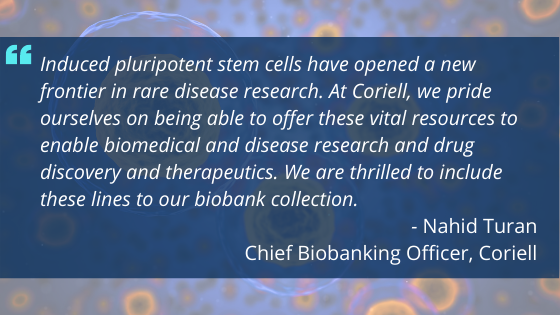The Coriell Institute for Medical Research has added a new collection of stem cells to its biobank offerings. The new collection is a result of a collaboration between Coriell and the Rett Syndrome Research Trust (RSRT) and consists of 10 lines of human-induced pluripotent stem cells created from blood donated by individuals with Rett syndrome. Rett syndrome is a rare, neurological disorder that presents itself in children, mostly girls from 6 to 18 months old. Early signs of the disease include loss of speech and hand use and other neurological functions.

The cell lines in this collection are induced pluripotent stem cells (iPSCs), a type of stem cell that is created in the laboratory from skin or blood cells. Using state-of-the-art techniques, scientists can reprogram these cells back into a stem cell state, and from there these cells can be coaxed into becoming nearly any type of cell found in the human body, including neurons and other types of brain cells. The ultimate goal of RSRT is to cure Rett syndrome and the ability to grow neurons from patient-derived iPSCs provides Rett researchers with a more relevant cell model in which to develop and test treatments.
Click here to read more.